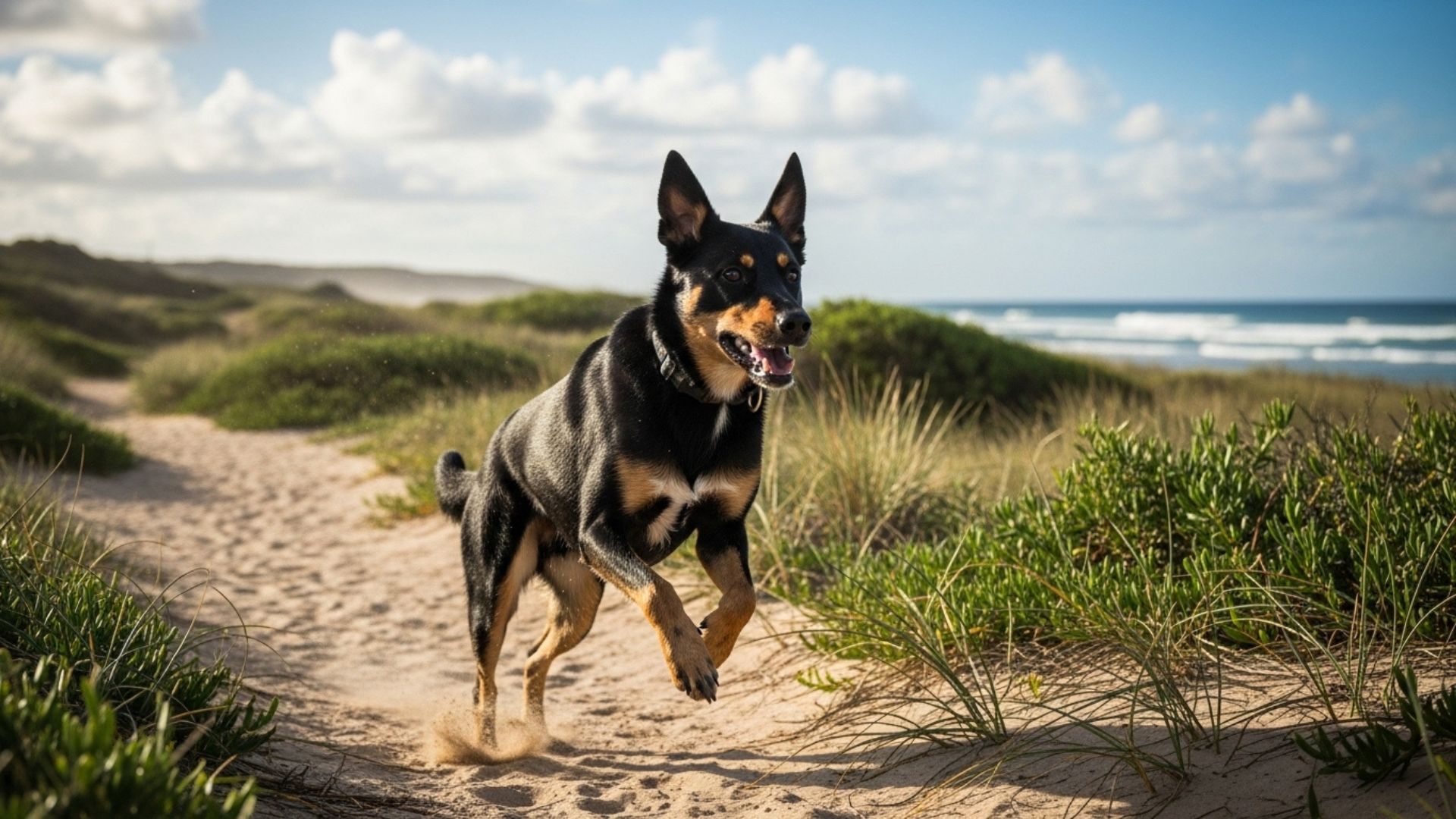Did you know that some dogs are born adventurers, perfectly suited to the salty breeze and sandy trails of coastal reserves? These environments—where sea, wind, and wildlife meet—demand more than just a friendly companion; they call for breeds with stamina, adaptability, and a love for the outdoors.
Whether you’re patrolling dunes, enjoying seaside hikes, or managing conservation areas, the right canine partner can make every task (and tide) more rewarding. Certain breeds just thrive where land meets sea.
This guide explores which dogs are best equipped for the unique conditions of coastal life—those that can handle shifting terrain, unpredictable weather, and the call of the ocean with ease.
If you’ve ever wondered which four-legged friend could be your ideal beachside companion or coastal ranger, you’re about to find out.
Best Dog Breeds For Coastal Reserves
1. Labrador Retriever
The Labrador Retriever is a coastal classic, built for adventure and water work. Originally bred in Newfoundland to retrieve fishing nets, their strong, athletic build and water-resistant double coat make them perfectly suited for life by the sea. Their webbed paws and “otter tail” help them glide smoothly through waves.
According to the AKC, Labs are outgoing and affectionate, often described as the ultimate companion dog. Their even temper and intelligence make them easy to train for tasks like patrolling dunes or assisting in conservation work. They love being outdoors and are happiest when they have space to run, swim, and explore.
This breed thrives on activity, so regular exercise is essential. Daily swims, long walks along the coast, or retrieval games will keep their minds sharp and bodies healthy. Their stamina makes them ideal partners for coastal rangers and active families alike.
Grooming a Lab is simple but important, especially for those living near saltwater. A quick brush a few times a week helps control shedding, while rinsing after beach days prevents irritation from salt or sand. Their coat dries quickly, adding to their seaworthy reputation.
Labs are loyal and people-focused, known for their gentle approach to both humans and other animals. They adapt easily to different routines, which makes them just as at home on a reserve patrol as they are playing fetch at sunset.
Fun Fact
Despite the name, Labradors actually originated in Newfoundland—not Labrador—and were once known as the “fisherman’s mate” for their knack at hauling nets and retrieving escaped fish.
2. Golden Retriever
Golden Retrievers are sunshine in dog form—cheerful, loyal, and always ready for an adventure. Originally bred in Scotland for retrieving game from both land and water, they’ve carried that love of the outdoors into every modern environment. Their water-repellent double coat and strong swimming ability make them naturals for coastal living.
As per PetMD, they’re intelligent and easy to train, responding well to positive reinforcement. For anyone working in or around coastal reserves, a Golden’s combination of obedience and enthusiasm is a winning trait. They’re happiest when engaged, whether that’s swimming in tidal pools or walking long stretches of sand.
Golden Retrievers have a gentle nature, which makes them great with families, teams, and visitors in shared environments. Their affectionate personalities and social ease help them fit into almost any group dynamic. That natural friendliness also makes them excellent therapy or outreach dogs in conservation communities.
Daily grooming keeps their beautiful coat healthy and prevents matting after saltwater play. They do shed, but regular brushing and bathing keep things under control. Routine care also supports skin health—important for a breed that spends time outdoors near sea air.
Active and loyal, Goldens are just as content exploring rugged coasts as they are relaxing after a long day. Their optimism and work ethic make them ideal partners for anyone who spends time by the water.
Fun Fact
Golden Retrievers were among the first breeds to achieve formal obedience titles, a testament to their intelligence and eagerness to please.
3. Portuguese Water Dog
The Portuguese Water Dog is practically built for coastal reserves. Once an essential helper for fishermen along Portugal’s coast, this breed fetched nets, carried messages, and even herded fish into nets. Their webbed feet and strong swimming ability make them one of the best maritime dogs around.
These dogs are intelligent, confident, and full of energy. They need physical and mental challenges to stay content, which makes life on the coast—with its wide spaces and varied terrain—a perfect match. Swimming, agility, and training exercises keep them balanced and happy.
Their curly, water-resistant coat protects them in wet and windy environments. Although hypoallergenic, it requires regular grooming and brushing to avoid tangles after swimming. They benefit from rinsing off saltwater to maintain healthy skin.
Portuguese Water Dogs are affectionate and form close bonds with their handlers. They are loyal workers, always alert and eager to please. With the right socialization, they do well in active families or reserve teams that value cooperation.
This breed’s mix of independence and loyalty means they can handle both work and play. Give them structure, and they’ll repay you with enthusiasm, focus, and a love of the sea that rivals any human’s.
Fun Fact
Portuguese Water Dogs once helped Portuguese fishermen communicate between boats, acting as living messengers in the waves.
4. Irish Water Spaniel
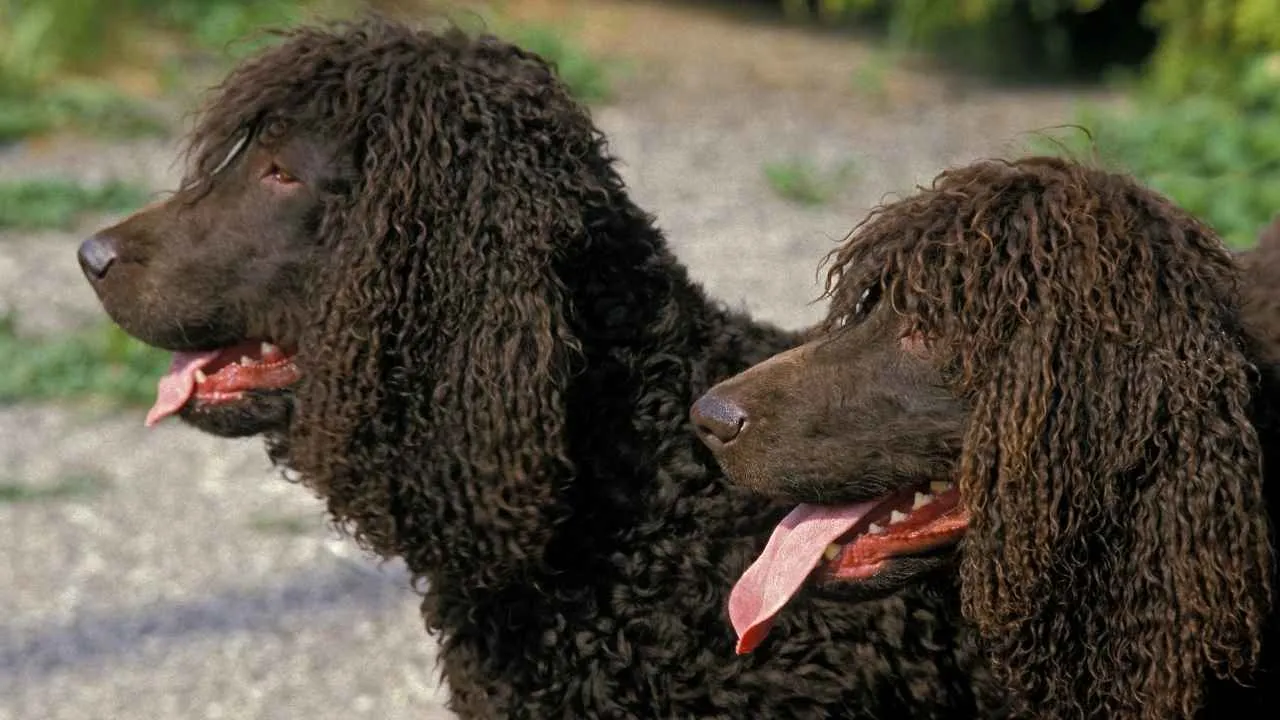
The Irish Water Spaniel combines intelligence, endurance, and a natural affinity for water. Bred in Ireland as a retriever, it’s one of the most distinctive water dogs thanks to its tight curls and unique “rat tail.” This design helps it move efficiently through cold or choppy waters.
With a curious and adventurous spirit, this breed thrives in active environments like coastal reserves. They’re playful yet hardworking, perfectly suited for jobs that mix exploration and teamwork. Their energy levels are high, so they need plenty of exercise and mental engagement.
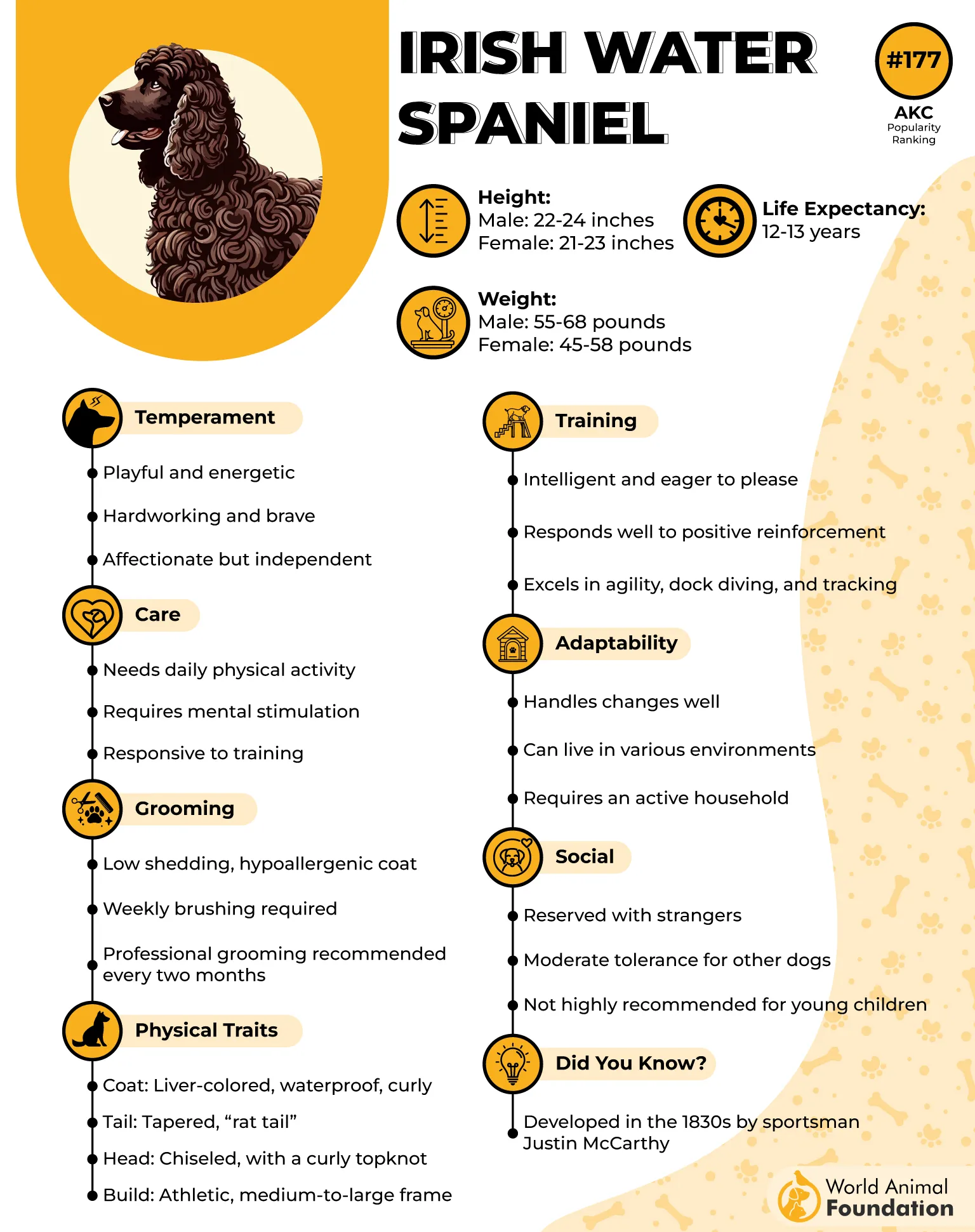
Hill’s Pet states that the Irish Water Spaniels are intelligent problem-solvers. Early training and socialization help direct that cleverness toward useful tasks, whether retrieving, tracking, or assisting handlers. They can be reserved with strangers but form strong, trusting bonds with familiar people.
Their dense coat needs regular maintenance to prevent tangles, especially after saltwater swims. Thankfully, they shed very little, making them easier to manage in work settings or shared living spaces. A quick rinse after beach time keeps them comfortable and looking their best.
Independent yet affectionate, this breed balances playfulness with focus. Their adaptability makes them perfect for handlers who want a loyal, energetic partner for life on the coast.
Fun Fact
The Irish Water Spaniel earned the nickname “the clown of the spaniel family” because of its playful antics and expressive personality—traits that make even a long coastal patrol feel lively.
5. Chesapeake Bay Retriever
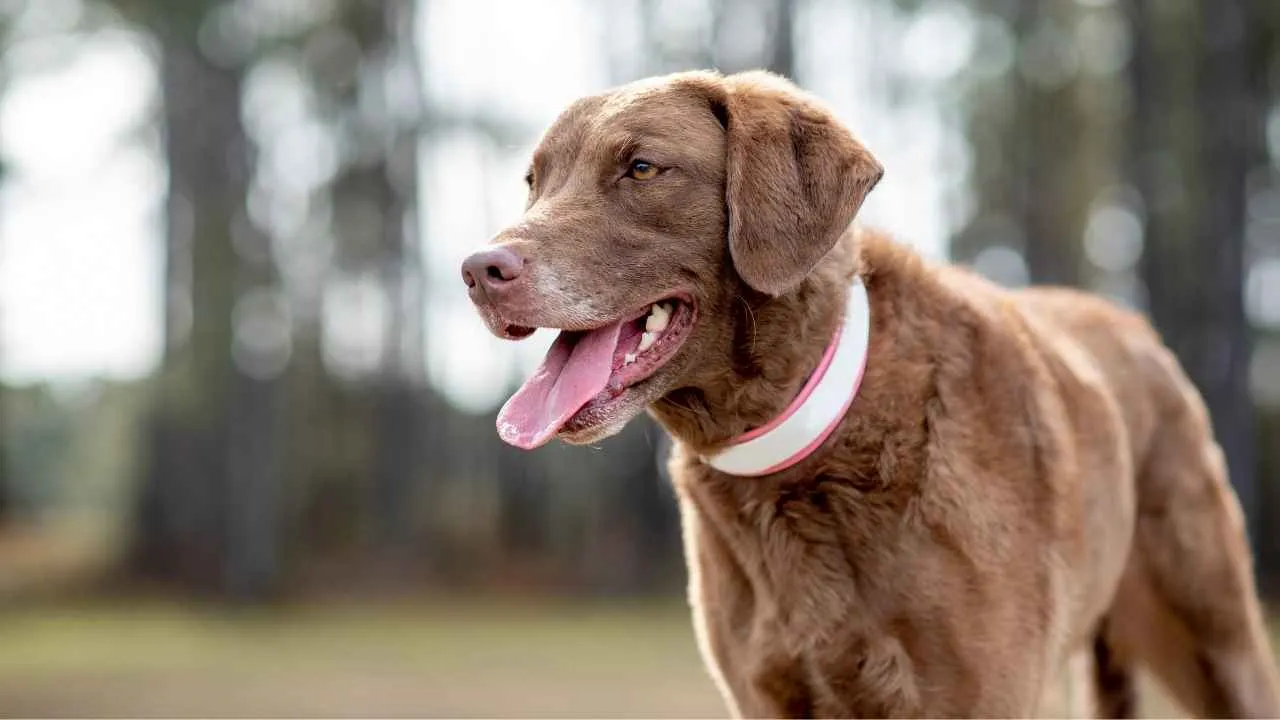
The Chesapeake Bay Retriever, affectionately known as the “Chessie,” is one of the toughest water dogs around. Bred by American hunters to retrieve ducks in the icy Chesapeake Bay, this breed’s strength, intelligence, and weatherproof coat make it an unbeatable coastal companion. Its oily, dense double coat repels water and keeps it warm even in freezing conditions.
Chessies are independent thinkers with strong problem-solving instincts. They love a challenge, making them perfect for rugged, hands-on coastal reserve work. Whether it’s swimming through rough surf or trekking across marshy terrain, their endurance and confidence stand out.
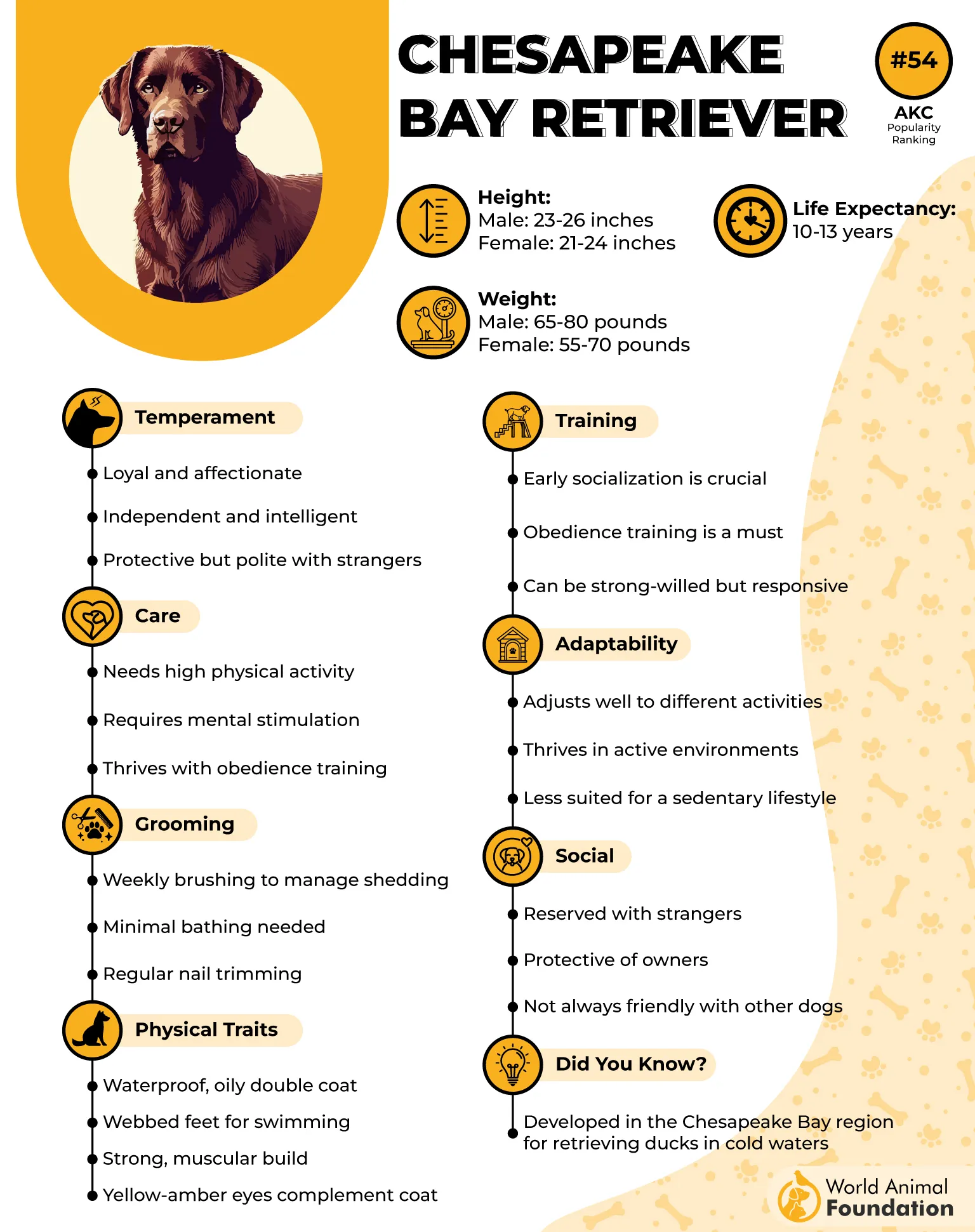
They can be reserved with strangers but affectionate with their families, which makes them reliable watchdogs. They’re protective but not aggressive, showing calm focus when well-trained. Consistent leadership helps channel their determination into positive work and exploration.
Grooming a Chesapeake is low maintenance thanks to their natural oils—brushing once a week and avoiding overbathing preserves their waterproof coat. They shed seasonally, so a quick cleanup routine after outdoor time keeps them looking sharp.
For anyone who loves adventure and the outdoors, this breed offers unmatched loyalty and stamina. They’re the kind of dog that thrives in wide-open spaces, salt air, and meaningful work.
Fun Fact
The Chesapeake Bay Retriever’s unique wavy coat and amber eyes were developed specifically to help them withstand the cold, choppy waters of Maryland’s bay area.
6. American Water Spaniel
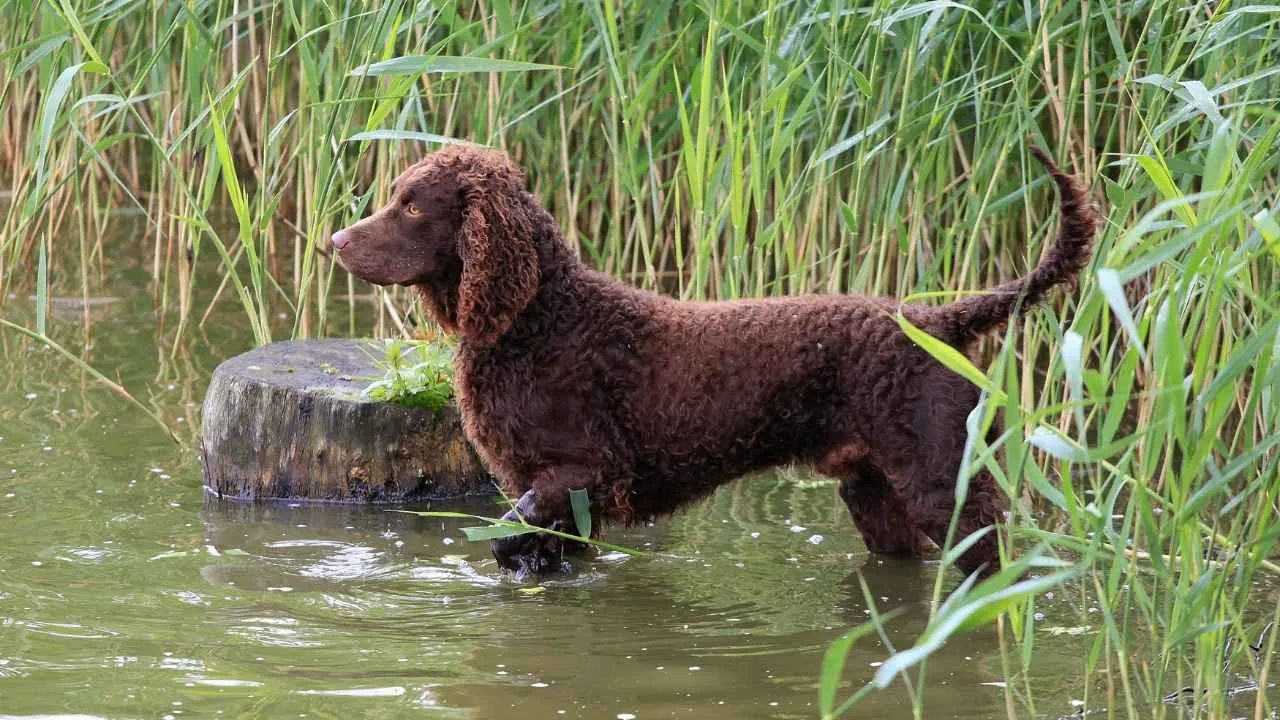
The American Water Spaniel is a lively, compact sporting breed with a big personality. Originally bred in the Midwest to retrieve game from boats and riverbanks, this dog has the perfect mix of agility and endurance for coastal life. Its curly, water-resistant coat and webbed feet make it a natural swimmer.
Friendly and intelligent, this breed loves staying busy and being near water. It’s an excellent choice for handlers looking for an energetic yet manageable-sized companion on coastal reserves. They’re responsive to training and eager to please, making them great team dogs.
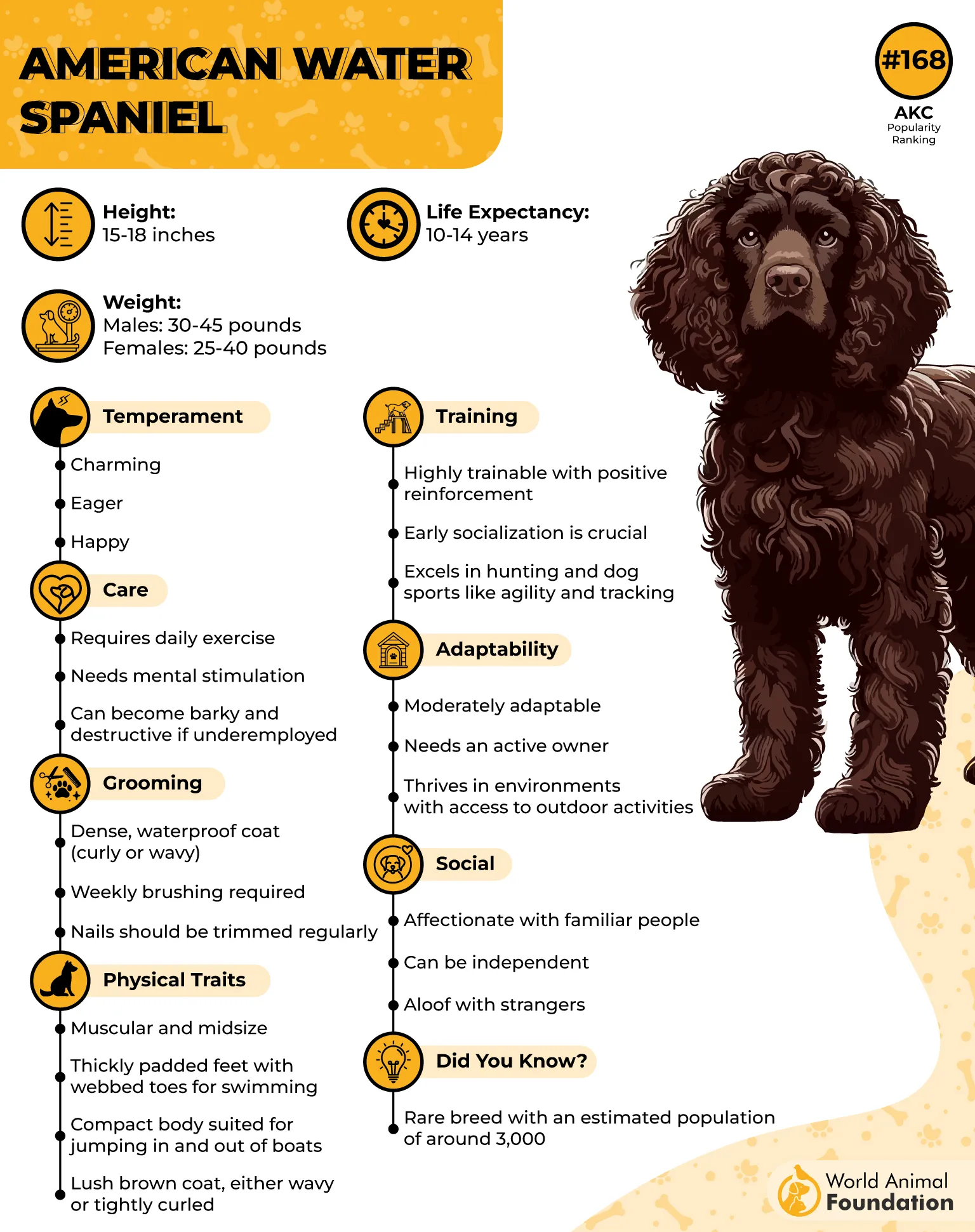
Their enthusiasm shines in outdoor settings. Whether chasing seagulls across the shore or retrieving driftwood, they’re happiest when engaged in physical activity. Mental stimulation is just as vital—puzzle games and scent work keep them balanced.
Coat care is easy with weekly brushing and occasional bathing to remove salt or debris. Regular ear cleaning helps prevent infections, which can occur in breeds that swim often. Their soft curls dry quickly, keeping them comfortable after a dip.
Loyal, cheerful, and adaptable, the American Water Spaniel makes a fun, dependable partner for anyone who loves coastal adventures and active workdays by the water.
Fun Fact
The American Water Spaniel is Wisconsin’s official state dog—a fitting tribute to a breed that loves lakes, rivers, and any splash of water it can find.
7. Newfoundland
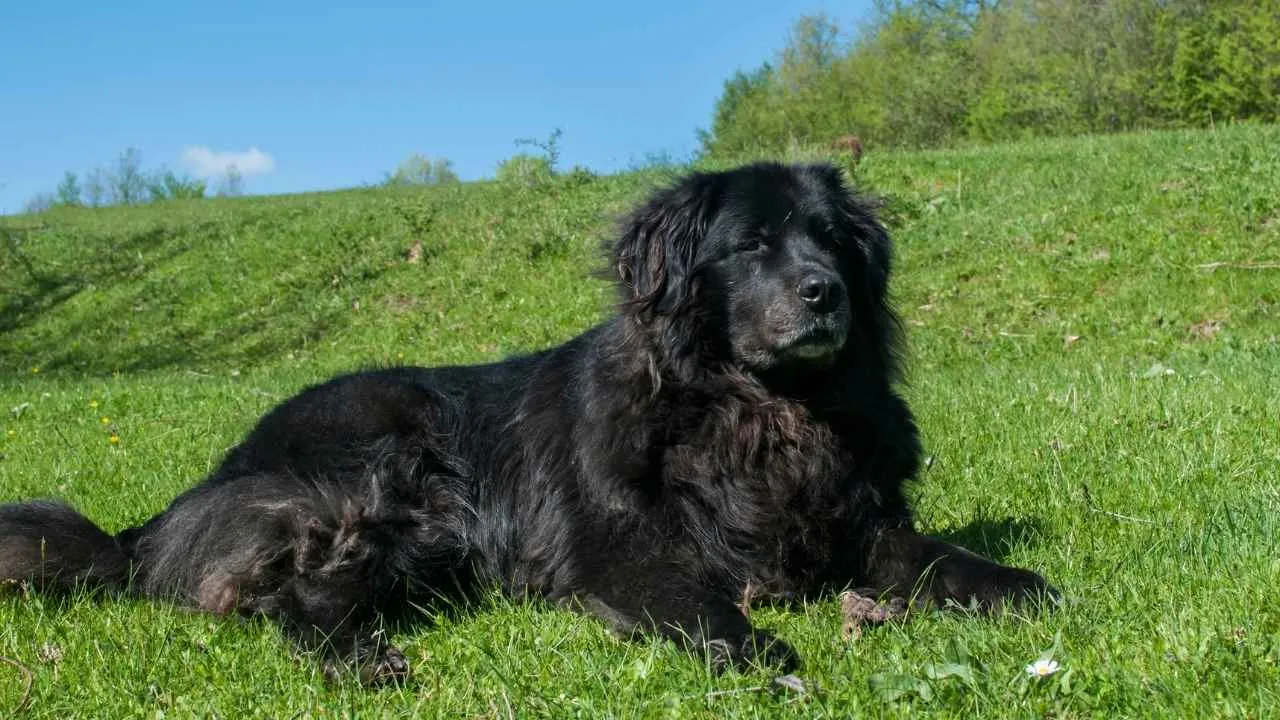
The Newfoundland is a gentle giant and one of the most capable swimmers in the dog world. Bred to work alongside Canadian fishermen, it’s famous for its massive strength, calm temperament, and natural lifesaving instincts.
Its thick, water-resistant coat keeps it warm even in frigid waters, while its webbed feet propel it powerfully through waves.
Despite their size, Newfoundlands are known for being soft-hearted and affectionate. They bond deeply with their families and thrive on companionship. In coastal reserves, their reliability and calm focus make them steady partners for work that involves long, patient hours outdoors.
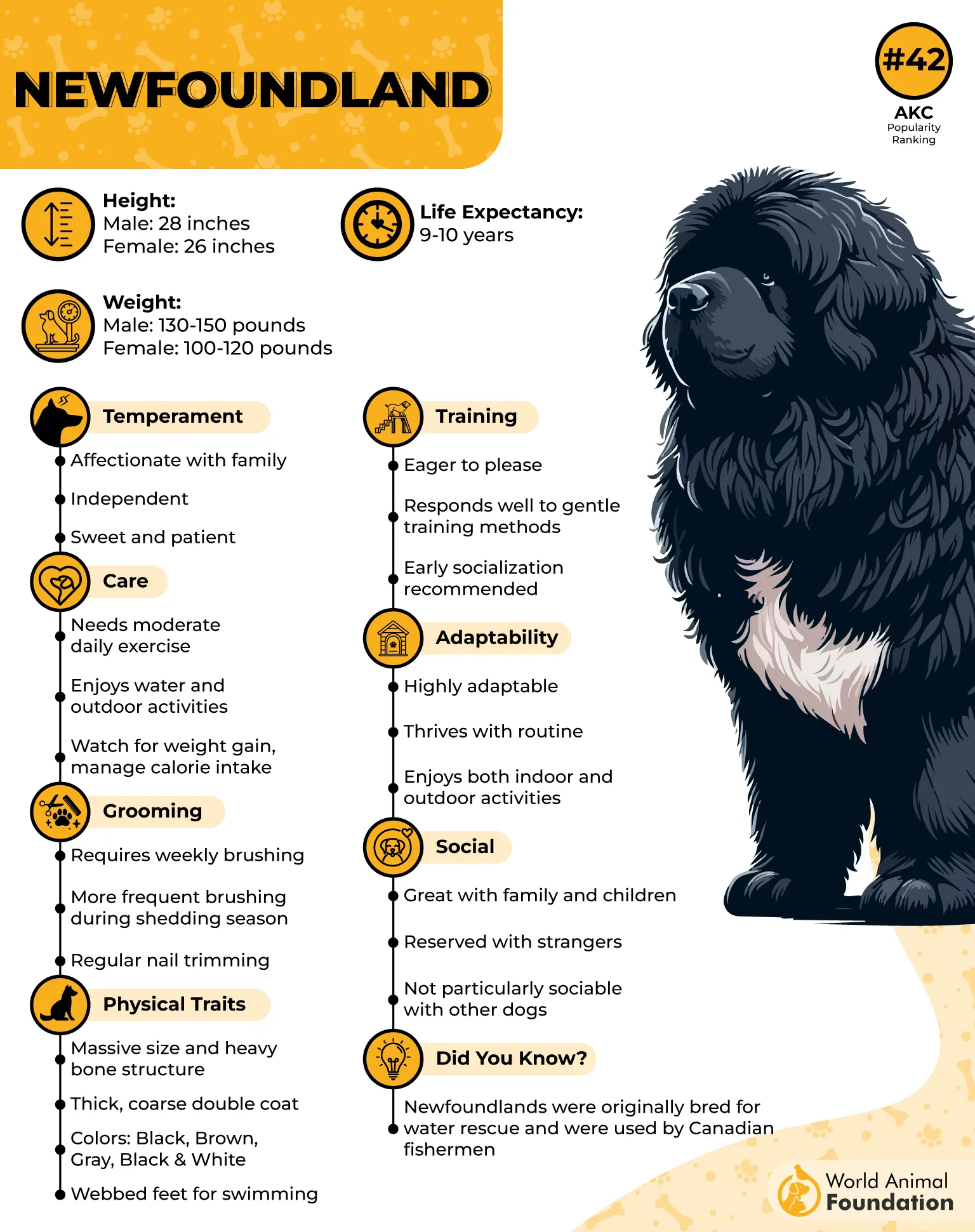
This breed’s swimming ability is legendary. They’ve been known to rescue people from drowning and can tow boats or gear across the water. Their stamina and courage make them a top choice for anyone living or working by the sea.
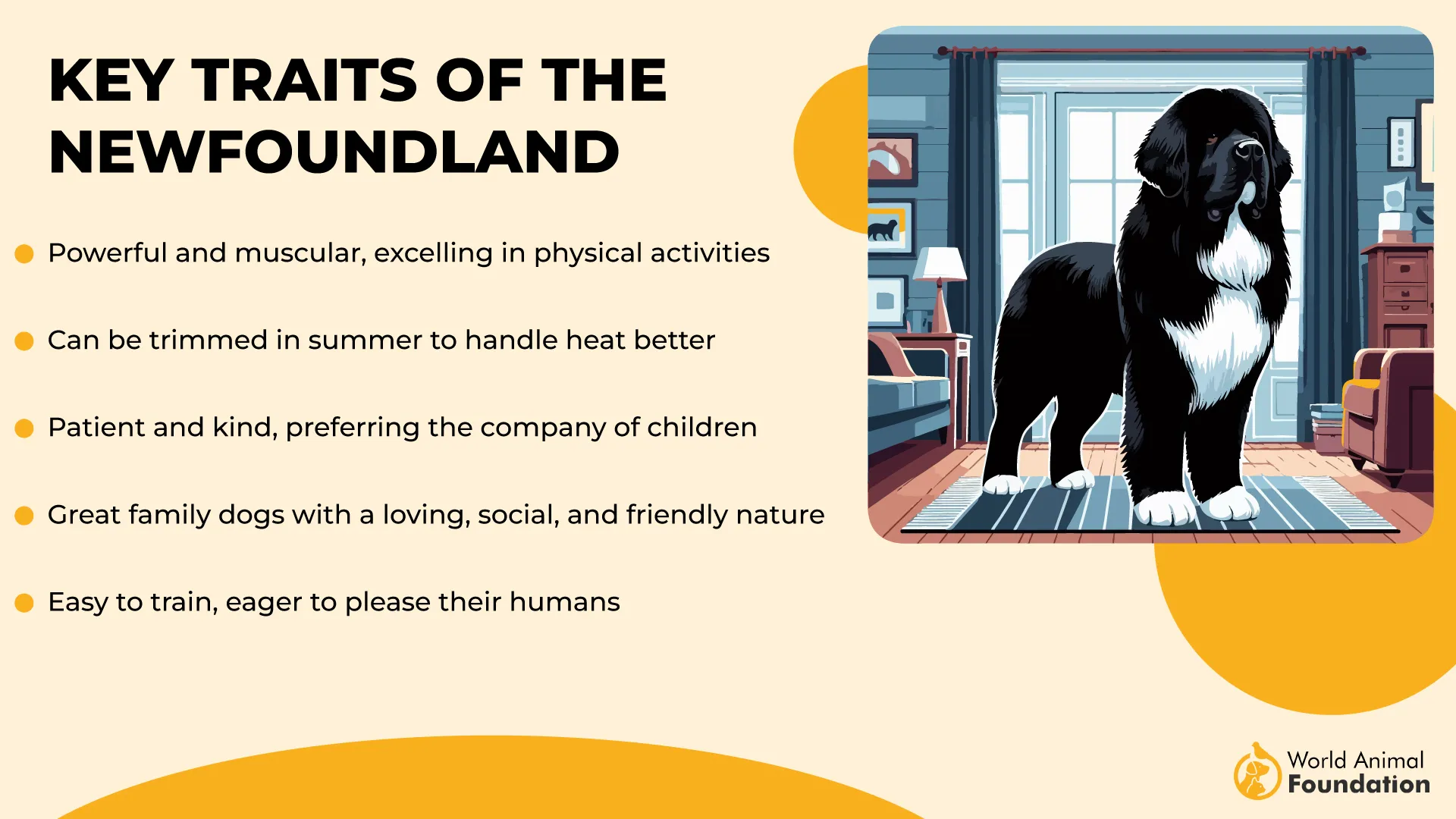
Their dense coat requires regular brushing to manage shedding and prevent tangles, especially after saltwater exposure. Bathing should be done sparingly to maintain the coat’s natural oils, which protect against moisture. A quick rinse after beach days keeps them clean and comfortable.
With their combination of strength, sweetness, and endurance, Newfoundlands bring heart and muscle to any coastal environment. They embody the perfect balance of work ethic and gentle companionship.
Fun Fact
Newfoundlands have been credited with saving countless lives at sea—and one famously helped rescue Napoleon Bonaparte from the water after his shipwreck.
FAQs
Are coastal reserves safe for all dog breeds?
Coastal reserves are safe for most dogs as long as they are supervised and conditioned for outdoor activity. Always check for hazards like sharp shells, strong tides, or heat exposure, and provide shade and fresh water during beach outings.
How can I keep my coastal-loving dog healthy and happy year-round?
Rinse off salt and sand after every beach trip, keep paws clean, and maintain coat care to prevent matting. Regular exercise, agility training, and mental stimulation keep energetic dogs content and fit for seaside living.
What should I look for in a dog breed suited for coastal living?
Choose breeds that are excellent swimmers, highly trainable, and adaptable to coastal homes. Look for partially webbed paws, a thick coat, and an easygoing nature—traits that make them well-suited for sand dunes, shallow waters, and beach adventures.
Conclusion
Life by the sea is a dream for many dogs—and their owners, too. Breeds that thrive near water are those built for endurance, agility, and companionship. A good coastal canine companion is one that loves seaside living, enjoys dock diving, and can handle long walks across sand dunes under the sun.
New pet parents should consider energetic dogs that are friendly, intelligent, and comfortable in both saltwater and freshwater environments. Coastal towns and reserves offer endless opportunities for play, exercise, and connection for these beach-loving dogs.
Whether you live by the waves or simply enjoy beach trips, choosing a well-suited, highly trainable breed ensures harmony between fun and safety. Other dog breeds, such as the English Setter, Border Collie, and many dogs skilled in water retrieving and canine sport,s also make wonderful partners for coastal adventures and relaxed coastal homes.


